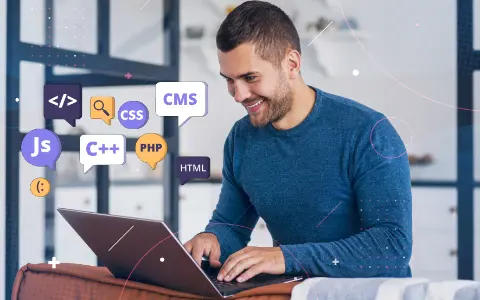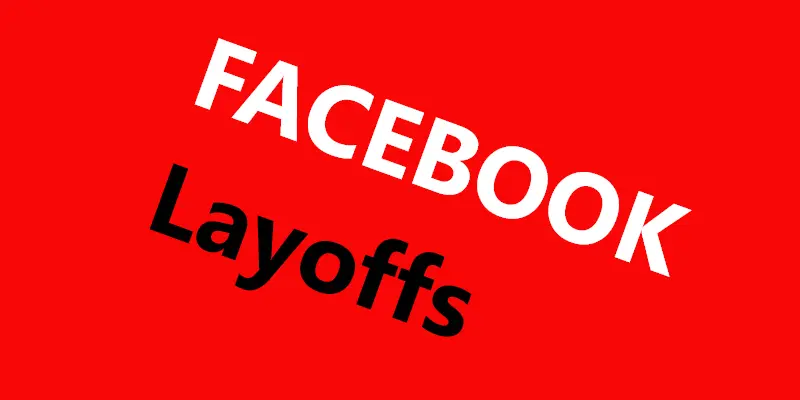
Top Easiest Programming Languages for Beginners 2023 | Developer Skills
- 200k
- 170k
- 90k
Are you thinking Python, Scratch, or JavaScript - beginner-friendly languages with simple syntax?
Several programming languages are considered beginner-friendly due to their simplicity, readability, and widespread use in introductory programming courses. Here are some of the easiest programming languages for beginners:
Python
Key reasons for beginners:
- Easy-to-read syntax: resembles plain English, making it intuitive for beginners.
- Vast libraries and frameworks: readily available for various applications.
- Large and supportive community: provides numerous resources and troubleshooting assistance.
- Versatile: can be used for web development, data science, machine learning, and more.
HTML and CSS:
Key reasons for beginners:
- While not traditional programming languages, HTML (HyperText Markup Language) and CSS (Cascading Style Sheets) are essential for web development.
- They are relatively easy to learn and provide a good starting point for understanding the basics of coding.
JavaScript:
Why it's good for beginners:
- Everywhere you look powers interactive elements and websites.
- Mobile app development potential: with frameworks like React Native.
- Easy to start with numerous online tools and tutorials available.
- Back-end capabilities: with frameworks like Node.js for server-side applications.
PHP
Ideal for beginners due to:
- Simple syntax: similar to C, making it easier for those with some programming experience.
- Ubiquitous in web development: powers many popular websites and platforms.
- Large and active community: offers abundant resources and support.
- Extensive framework selection: available for various web development needs.
Mizent offers web development courses for job seekers. Let's join the Mizent demo class to start your learning as a web developer.
Mizent Web Development Course: Click Here
Ruby
Benefits for beginners:
- Expressive and concise syntax: reads like a natural language, making it easier to understand.
- Strong community support: offers valuable resources and assistance to beginners.
- Focuses on developer productivity: prioritizes ease of use and rapid development.
- Great for web development: popular for building modern web applications.
Java
Benefits for beginners:
- Specifically designed for Apple platforms: iOS, iPadOS, macOS, watchOS, and tvOS.
- Clean and modern syntax: focuses on ease of learning and readability.
- Plenty of resources and tutorials: are provided by Apple and the community.
- Growing demand: becoming a valuable skill for app developers.
Swift
Key reasons for beginners:
- Swift is Apple's programming language for iOS, macOS, watchOS, and tvOS app development. It is designed to be easy to read and write.
- Swift has become popular among beginners interested in developing applications for Apple devices.
C#
Key reasons for beginners:
- C# (C Sharp) is a language developed by Microsoft and is commonly used for Windows application development and game development using Unity.
- It has a straightforward syntax and is closely related to other C-based languages.
Scratch
Key reasons for beginners:
- Scratch is a visual programming language designed for beginners, especially children. It uses a drag-and-drop interface, making it easy to create simple programs by stacking visual blocks.
- Scratch is a great way to introduce programming concepts without worrying about syntax.
Mizent offers the TechKid Program offers coding and robotics enrichment programs for children. Let's join the demo class to start your learning as a techie.
Mizent TechKid Program: Click Here
Conclusion:
Python is often called the easiest language for beginners and it's recommended for its simplicity and versatility, but the best language for you might also depend on the type of projects you want to work on.
Choosing your first language:
- Consider your interests and goals: what kind of applications do you want to build?
- Research each language's features and difficulty level.
- Explore online resources and tutorials: find something that suits your learning style.
- Start with a simple project to practice and build confidence.
Remember: the "easiest" language is subjective and depends on your background and learning preferences. Try different ones and find the perfect fit for you!
FAQs
Why is Python recommended as a first programming language for beginners?
Python is recommended for beginners due to its simple and readable syntax. It emphasizes code readability and allows beginners to focus on learning programming concepts without getting bogged down by complex syntax.
Can JavaScript be considered an easy language for beginners?
Yes, JavaScript is considered easy for beginners. It is a versatile language used for web development, and its syntax is relatively straightforward. Learning JavaScript provides a foundation for front-end web development.
Is it a good idea to start learning programming with Java?
Yes, Java is a good language for beginners. It has a syntax similar to other C-based languages, and its "write once, run anywhere" feature makes it versatile. Java is widely used in enterprise applications and provides a solid foundation for learning other languages.
Which language is best for beginners who want to learn web development?
JavaScript and PHP are both excellent options for beginners who want to learn web development. JavaScript is ubiquitous for front-end development, while PHP is popular for back-end development. Both languages have large communities and numerous resources available.
Is it better to start with HTML and CSS before learning a programming language?
A3: While not strictly programming languages, HTML and CSS are essential for building websites and can provide a good foundation before learning a programming language. Understanding how websites are structured and styled can be beneficial when transitioning to a more complex language.
What resources are available for beginners who want to learn programming?
There are numerous resources available for beginners, including:
- Online courses: platforms like Mizent Career Prep, and Coursera, offer beginner-friendly courses in various programming languages.
Mizent offers web development courses for job seekers. Let's join the Mizent demo class to start your learning as a web developer.
Mizent Web Development Course: Click Here
- Tutorials and documentation: Many programming languages have official documentation and community-created tutorials available online.
- Books and ebooks: Several books are specifically designed to teach programming to beginners.
- Interactive coding platforms: platforms like Codecademy and Khan Academy offer interactive coding challenges and exercises.
- Online communities: forums and communities like Stack Overflow provide a platform to ask questions and receive help from experienced programmers.
How long does it take to learn a programming language?
The time it takes to learn a programming language varies depending on the language itself, your prior experience, and the amount of time you dedicate to learning. For beginners, it can take anywhere from a few weeks to several months to become comfortable with the basics of a language.
What makes Scratch a good choice for absolute beginners, especially kids?
Scratch is a visual programming language with a drag-and-drop interface, making it ideal for absolute beginners, including children. It helps beginners understand programming concepts through a graphical approach, without the need to write code.
Do you have further questions related to the below questions, follow our future blogs to know the answers.
- Which programming language is best for data science?
- Which programming language is best for game development?
- Is it better to learn one language at a time or multiple languages simultaneously?
- What are the career opportunities for someone who learns programming?












